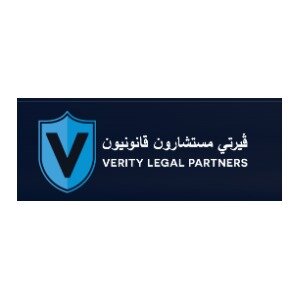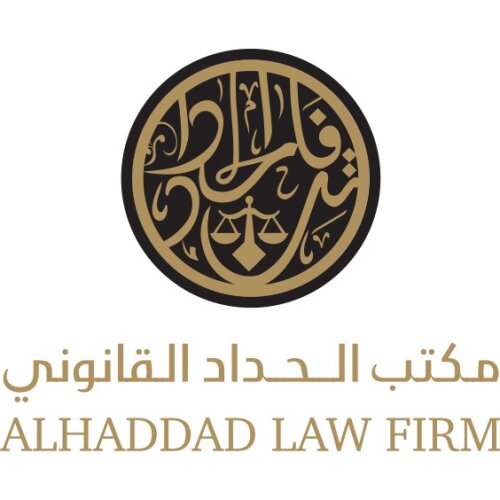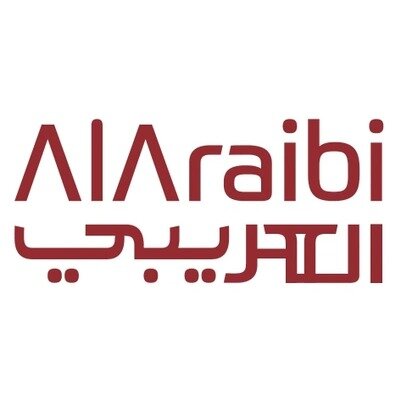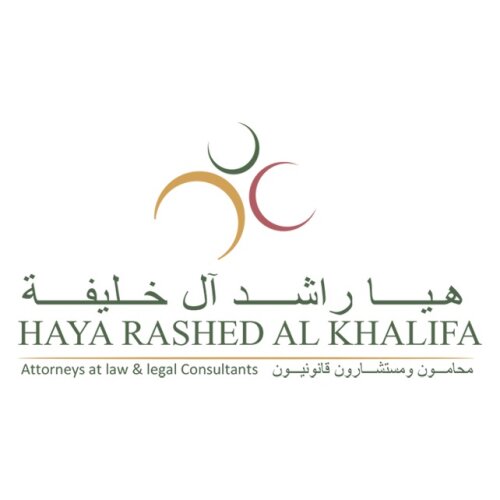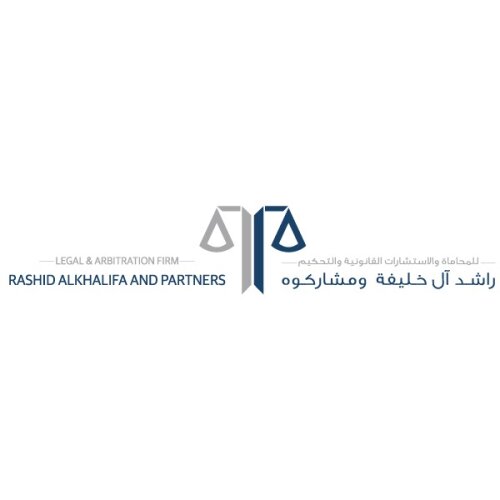Best Renewable & Alternative Energy Lawyers in Manama
Share your needs with us, get contacted by law firms.
Free. Takes 2 min.
List of the best lawyers in Manama, Bahrain
About Renewable & Alternative Energy Law in Manama, Bahrain
Renewable and alternative energy law in Manama, Bahrain governs the generation, distribution, and use of energy derived from sources such as solar, wind, bioenergy, and waste-to-energy processes. As Bahrain aims to diversify its energy portfolio and support environmental sustainability, the government has introduced regulatory frameworks and incentives to encourage investment in renewable energy. In Manama, the legal landscape is evolving rapidly, with authorities including the Ministry of Electricity and Water Affairs and the Sustainable Energy Authority (SEA) playing crucial roles in developing and enforcing energy policies and regulations. Understanding the legal context is key for businesses, property owners, and investors looking to participate in the renewable energy sector.
Why You May Need a Lawyer
Legal professionals specializing in renewable and alternative energy provide essential guidance to individuals and organizations operating in this evolving sector. Common situations where legal expertise is crucial include:
- Securing licenses and regulatory approvals for energy projects.
- Navigating land use and zoning issues for solar or wind installations.
- Negotiating and drafting contracts related to energy purchase agreements or joint ventures.
- Ensuring compliance with environmental impact assessments and local regulations.
- Resolving disputes over grid access or regulatory enforcement.
- Advising on incentives and subsidies available for renewable energy projects.
- Assisting foreign investors with government requirements and local partnership rules.
Engaging a lawyer early can help anticipate challenges, mitigate risks, and ensure that all legal requirements are fulfilled when adopting or investing in renewable and alternative energy initiatives.
Local Laws Overview
Bahrain has taken substantive steps to promote renewable energy, with several laws and regulations aimed at facilitating clean energy development. Key aspects relevant to Manama include:
- The National Renewable Energy Action Plan (NREAP) sets ambitious targets for increasing the proportion of renewables in Bahrain’s energy mix.
- The Sustainable Energy Authority (SEA) acts as the primary regulatory body, establishing technical standards and overseeing project implementation.
- Building codes and urban planning rules in Manama outline permissible zoning, installation standards, and safety requirements for renewable energy systems such as rooftop solar panels.
- Licenses and permits are generally required for commercial energy production or distribution, with specific rules depending on project size, technology, and location.
- There are incentives and financing schemes available to encourage investments, including grants, tax exemptions, and feed-in tariffs for renewable energy producers.
- Environmental regulations mandate impact assessments for larger projects, ensuring compliance with sustainability and conservation goals.
Because these laws and requirements can change frequently, staying up to date and seeking adequate legal advice is essential for any renewable energy venture in Manama.
Frequently Asked Questions
What types of renewable energy projects are commonly developed in Manama?
Solar photovoltaic (PV) systems, solar thermal energy, and waste-to-energy projects are the most common forms of renewable energy being developed in Manama due to the region’s abundant sunlight and urban infrastructure.
Do I need a license to install solar panels on my property?
For residential installations, a permit from the local municipality may be required. Commercial projects or grid-connected systems generally require additional licensing from the Sustainable Energy Authority.
What is the role of the Sustainable Energy Authority?
The SEA oversees policy implementation, regulatory compliance, promotion of investment, technical standards, and licensing for renewable energy projects throughout Bahrain, including Manama.
Are there financial incentives for renewable energy users in Manama?
Yes, Bahrain offers grants, subsidies, and potential feed-in tariffs for qualifying projects. These incentives are designed to promote both private and commercial adoption of renewable energy technologies.
Can expatriates or foreign companies invest in renewable energy in Manama?
Foreign investors can participate in renewable energy projects, but they must comply with local ownership provisions and licensing requirements, which may require partnering with Bahraini nationals or entities.
How is grid connection managed for new renewable energy projects?
Applicants need approval from the Bahrain Electricity and Water Authority (EWA) and must meet technical requirements to ensure safe and stable integration of renewable systems into the national grid.
Are there specific environmental regulations for renewable energy projects?
Yes, projects of a certain size must undergo environmental impact assessments and receive approval from environmental authorities, especially those that may affect sensitive habitats.
What legal considerations apply to energy purchase agreements?
Contracts must clearly outline pricing, duration, delivery obligations, contingency measures, and dispute resolution mechanisms, all while adhering to Bahrain’s contract and commercial laws.
Can renewable energy be used for both residential and commercial applications?
Yes, renewable energy systems can be installed for residential use, business premises, and large industrial operations, with regulations tailored depending on the scale and type of installation.
What should I do if I face a dispute regarding a renewable energy project?
It is advisable to consult with a lawyer familiar with energy law. Many disputes can be resolved through negotiation or mediation, but some cases may require arbitration or litigation in Bahraini courts.
Additional Resources
For those seeking more information or support regarding renewable and alternative energy law in Manama, these resources may be helpful:
- Sustainable Energy Authority (SEA) - Bahrain’s primary organization for regulatory guidance and project support in renewable energy.
- Ministry of Electricity and Water Affairs - Responsible for policy, planning, and development of energy infrastructure.
- Bahrain Electricity and Water Authority (EWA) - Manages grid operations, technical approvals, and utility connections.
- Bahrain Chamber of Commerce and Industry - Can offer guidance to businesses and investors evaluating participation in the renewable sector.
- Local law firms and legal consultancies - Many of these specialize or have departments focused on energy law and can provide tailored legal advice.
Next Steps
If you are considering installing renewable energy systems or investing in alternative energy projects in Manama, Bahrain, it is vital to start by understanding the applicable legal requirements. The following steps can help guide your process:
- Carry out preliminary research about your intended project’s requirements, including technical and legal considerations.
- Contact the Sustainable Energy Authority and other relevant governmental bodies to clarify permits, incentives, and grid connection protocols.
- Consult with a lawyer who specializes in renewable and alternative energy law in Bahrain to review compliance, contracts, and investment structures.
- Prepare documentation for licensing, environmental assessments, and other regulatory filings as needed.
- Engage with local experts or business partners if you are a foreign investor to ensure smooth navigation of local laws and business practices.
Having experienced legal support throughout your renewable or alternative energy endeavor will help avoid common pitfalls, streamline approvals, and give your project the best chance of success in Manama’s dynamic energy sector.
Lawzana helps you find the best lawyers and law firms in Manama through a curated and pre-screened list of qualified legal professionals. Our platform offers rankings and detailed profiles of attorneys and law firms, allowing you to compare based on practice areas, including Renewable & Alternative Energy, experience, and client feedback.
Each profile includes a description of the firm's areas of practice, client reviews, team members and partners, year of establishment, spoken languages, office locations, contact information, social media presence, and any published articles or resources. Most firms on our platform speak English and are experienced in both local and international legal matters.
Get a quote from top-rated law firms in Manama, Bahrain — quickly, securely, and without unnecessary hassle.
Disclaimer:
The information provided on this page is for general informational purposes only and does not constitute legal advice. While we strive to ensure the accuracy and relevance of the content, legal information may change over time, and interpretations of the law can vary. You should always consult with a qualified legal professional for advice specific to your situation.
We disclaim all liability for actions taken or not taken based on the content of this page. If you believe any information is incorrect or outdated, please contact us, and we will review and update it where appropriate.




